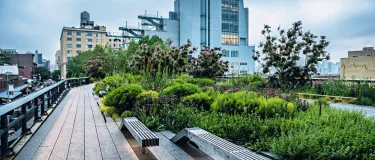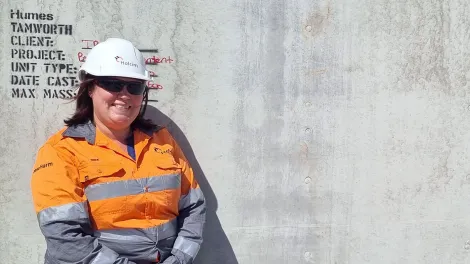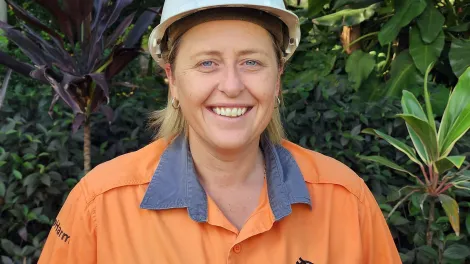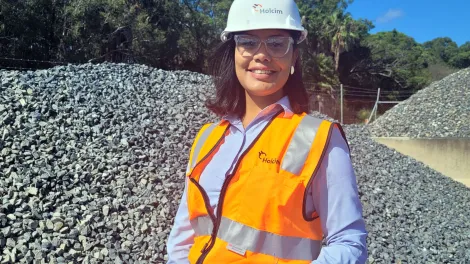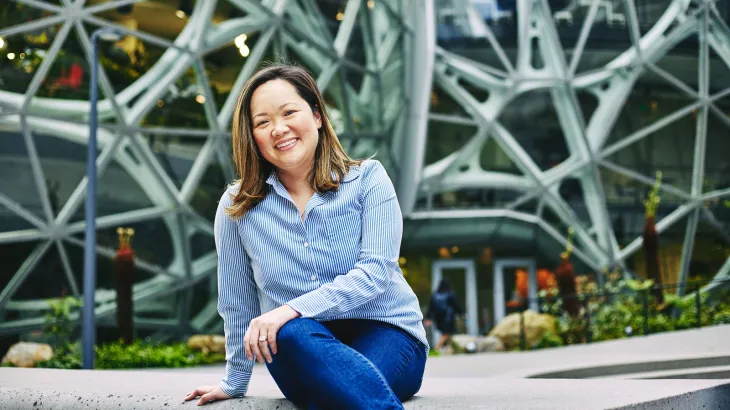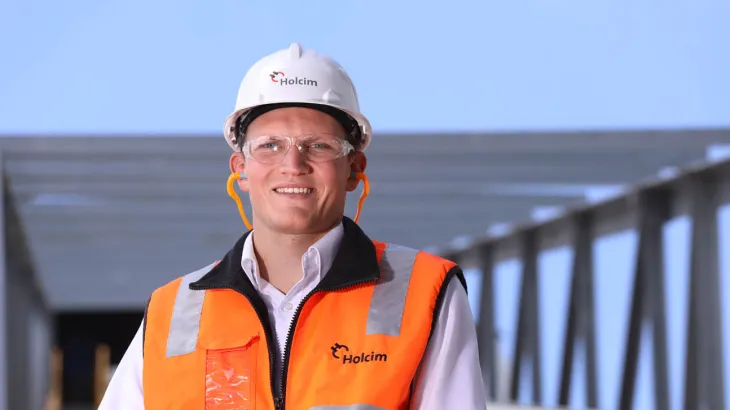Empowering Inclusion, Building Progress
On International Women’s Day, we’re reflecting on the pivotal role diversity and inclusion play in fostering genuine progress.
In a world striving for inclusiveness, Holcim is committed to championing diversity and empowerment within its workforce. To celebrate International Women’s Day 2024 and #InspireInclusion, we chatted with women in management, production, and sales roles to ask them about their experience – as well as their aspirations for the planet, and the workplace.
Meet three phenomenal women at the heart of our business – Brianna Burns, Michelle Williams, and Thalita Santos. Their unique strengths, showcased across diverse roles, contribute to shaping our journey towards a more inclusive, sustainable, and diverse future.
Brianna Burns
Brianna is currently seconded as the Area Manager for Humes in Tamworth, stepping into the role during Clare Taylor's maternity leave in the first half of 2024. This opportunity has not only allowed her to gain a firsthand experience of the Country Music Festival but also developed her career as a business unit manager. During this period, Brianna has had the chance to enhance her skills in sales and customer engagement, broadening her expertise in the multifaceted aspects of the role.
Brianna's professional journey began in administrative and reception roles in Adelaide with Humes. She initially managed quality documentation and later transitioned into the position of Quality Officer. Demonstrating her versatility, she then assumed the role of Production Manager at the Pooraka plant, efficiently overseeing the demanding production line operations across multiple shifts. This progression underscores Brianna's valuable experience and adaptability, positioning her as a capable and accomplished leader within the organisation.
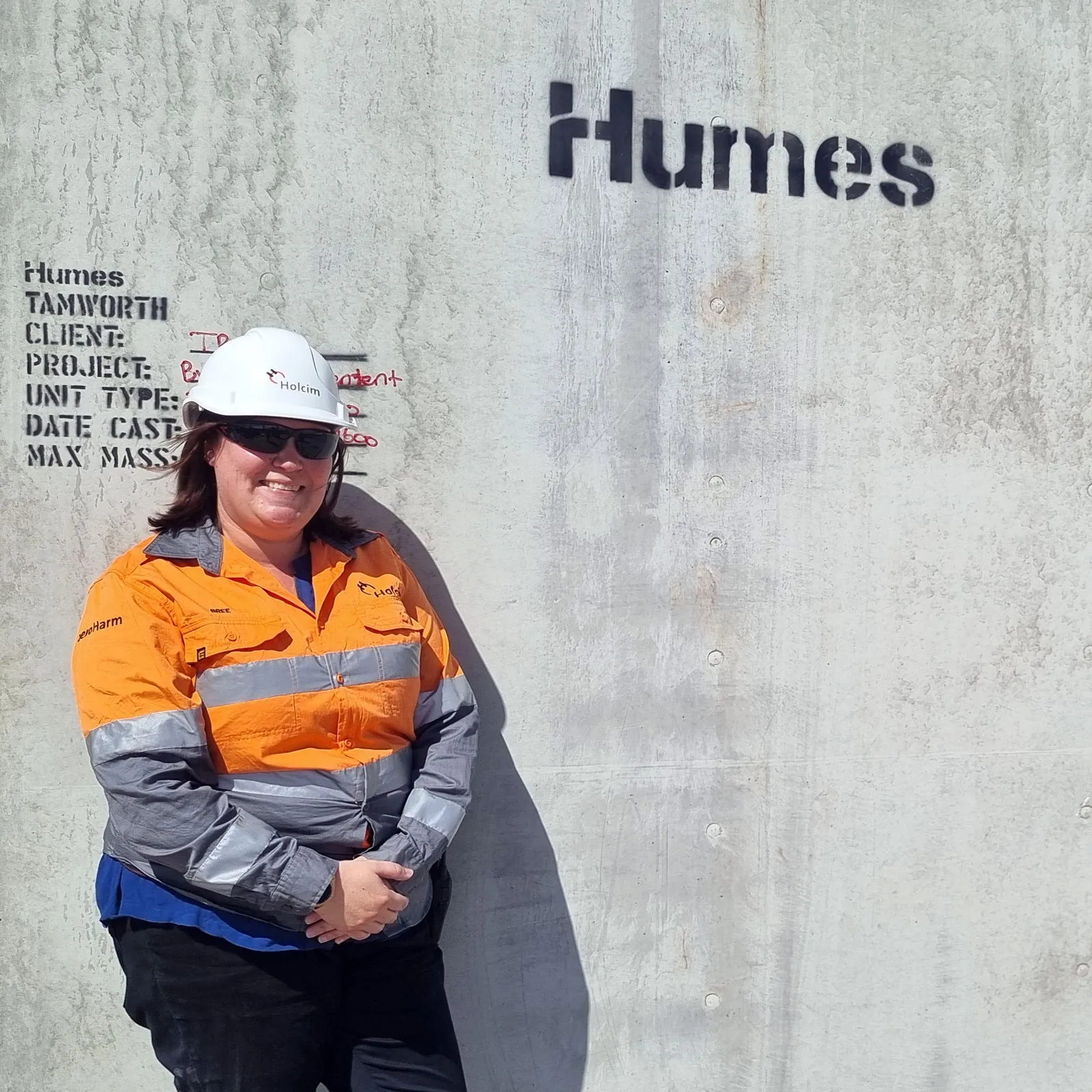
What’s the focus of your role?
As Area Manager, my responsibilities extend to both sales and production. This secondment gives me an enriching opportunity to deepen my understanding of sales by visiting customers with the account managers.
Humes Tamworth played a pivotal role in the Inland Rail project by supplying carbon-neutral precast concrete culverts for the 103-kilometres-long Parkes to Narromine section, starting from early 2020. Following the successful completion of this significant project, the focus has transitioned towards maintaining cost discipline and lean manufacturing, as well as actively fostering collaboration with production facilities in Sydney and Grafton.
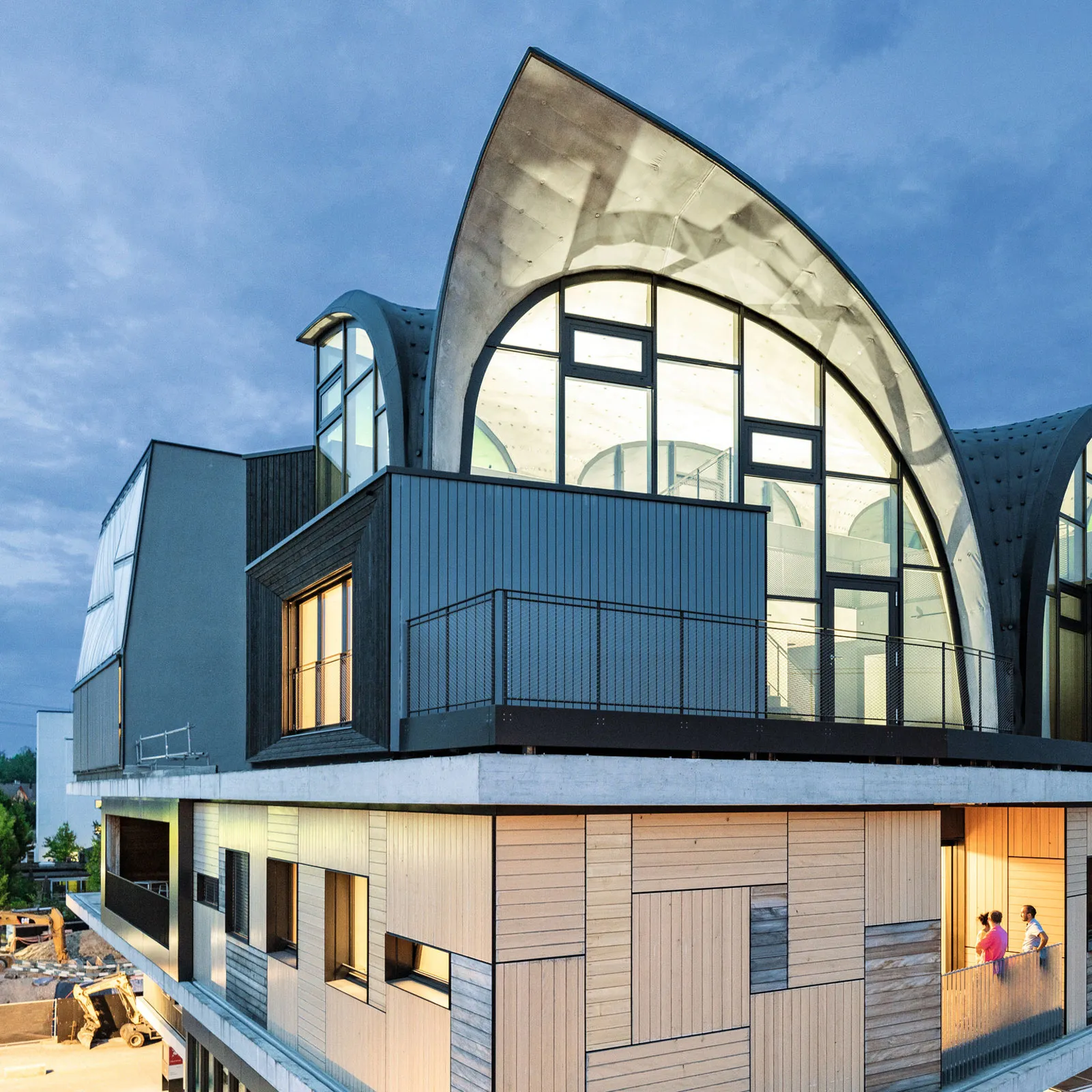
How does your role enable you to champion Sustainability?
Our goal is to be a supplier of choice, so we’re taking responsibility for the impact our products have on the planet and providing solutions to customers they can trust. We produce concrete products using concrete that incorporate industrial by-products (such as fly ash and slag), which reduces the use of virgin materials, reduces the amount of cement needed, reduces the energy needed to manufacture the product and helps conserve natural resources.
We’ve produced the first third-party verified Environmental Product Declarations (EPDs) that show comparable data of the environmental impact of our products. Specifically, our FutureCast range has proven instrumental in assessing the embodied carbon impact of Humes precast and prestressed concrete products, including reinforced concrete pipe.
We've partnered with the Concrete and Aggregates divisions to explore ways to make our products more sustainable and extend material cycles. Currently, we're looking into the possibility of transporting concrete waste from our Tamworth plant to the Dubbo aggregate plant. There, it could be crushed and used to replace virgin materials, promoting circularity. In regional Australia, logistics pose challenges, but we're committed to improving our environmental impact here too.
Additionally, we're working on a project onsite to capture rainwater and reuse water from the plant, aiming to enhance water and energy efficiency.
What are your hopes for the future of circularity and decarbonisation?
For me, the key issue is making information about the circular economy available and understandable to everyone. I believe we need a paradigm shift, a broader understanding that transitioning to a more circular economy is imperative. My motivation stems from concerns about the world my children will inherit, and I am dedicated to doing my part in creating a better environment for future generations.
How do we increase female participation and achievement in management roles?
Women shouldn’t be concerned about taking on a role that’s been traditionally dominated by men. There really aren’t male or female roles, it’s all about whether you have the ability and personal strength to be a leader. I don’t see myself as a female manager, just a person doing a role – and that’s how I want to be perceived. I grew up without my mother and father setting limits or expectations because I was a woman.
In a male-dominated environment like a concrete pipe plant, it’s important to provide opportunities. I introduced the first female assembly worker, which is quite a physical job. This doesn’t just provide an opportunity at the individual level, it also enables change across the workforce.
What message do you think is the most important for young women thinking about a career with Holcim?
Holcim has been very supportive of their people in the workforce and enabling career development. The “One Holcim” approach models the values and behaviours that are vital in our everyday life, including how we collaborate to leverage each other’s strengths.
How can we best understand, value, and seek out the inclusion of women?
It’s important to know that it’s not a man’s world anymore – it’s a world for everyone. And when women themselves are inspired to be included, there's a sense of belonging, relevance, and empowerment.
Michelle Williams
Michelle is the Production Manager at Beenleigh Quarry, located between Brisbane and the Gold Coast. After starting her working life across a variety of roles in horticulture, Michelle decided to pursue a degree in Environmental Science in her late 20s. Opting for distance education at Southern Cross University, she successfully balanced full-time work, incorporating on-site training blocks each term.
With her degree completed, Michelle joined the Holcim Graduate Recruitment program and had the opportunity to experience an array of roles across the business. Recognising her passion for the aggregates business, she progressed through positions including Environmental Supervisor and Pit Manager, before her current role as Production Manager.
What’s the focus of your role at Holcim?
I liaise between the Quarry Manager and the workforce to ensure smooth day-to-day operations across development of the quarry, drill and blast, load and haul activities, environmental compliance, and ensure that the fixed plant is producing material to the required quality specifications for customers.
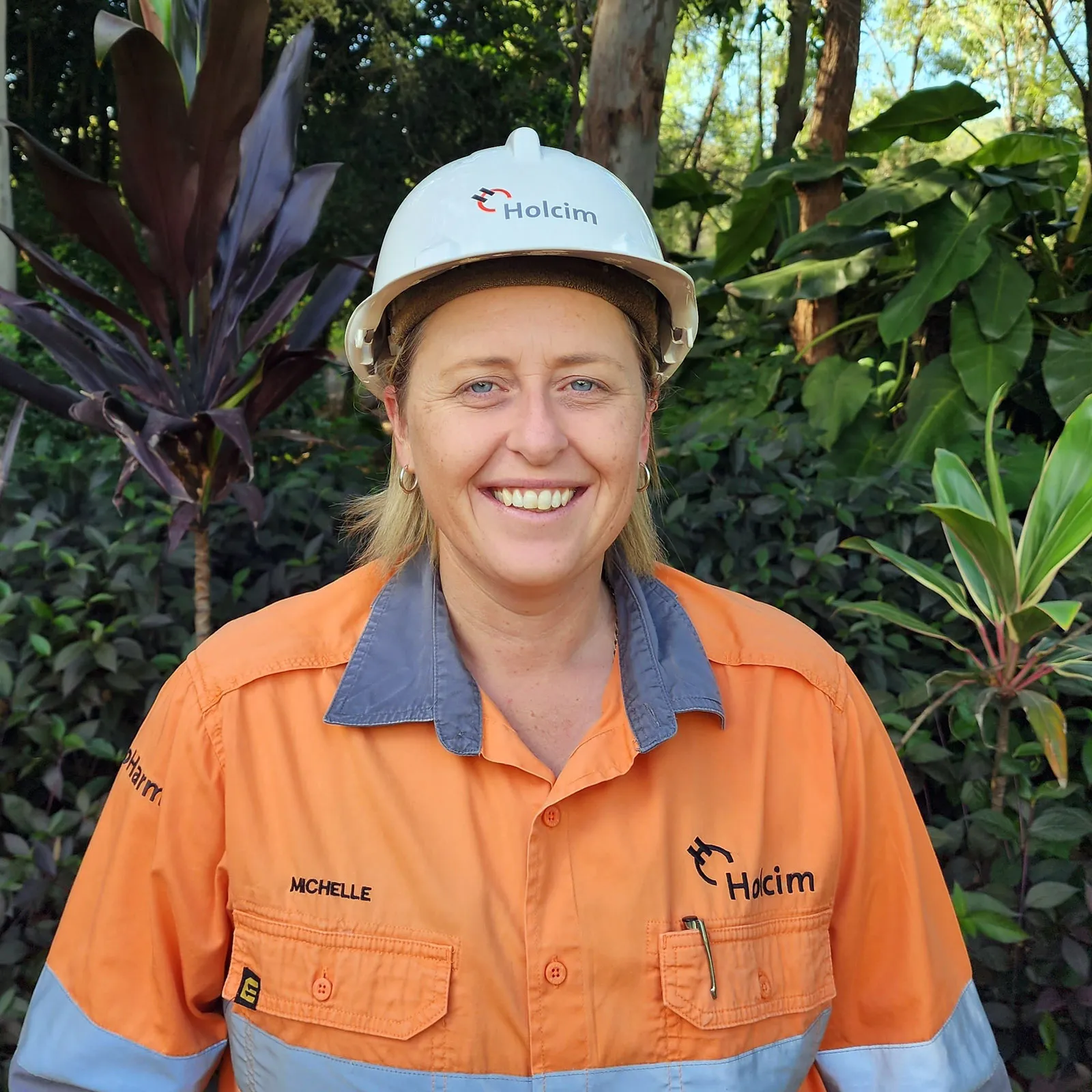
How does your role enable you to champion Sustainability?
I’m proud of how we can work to tackle biodiversity loss and degradation in a transformative way that goes beyond traditional rehabilitation. We worked with WildCare, a local wildlife group and the North East Albert team from Landcare Australia to establish a wildlife fodder plantation for injured animals.
The project started as a labour of love in 2019, when I planted the initial 324 young trees myself, because the COVID-19 lockdowns meant we couldn’t bring in any help. The 12-hectare space on the fringe of the quarry was previously used for cattle grazing which caused compaction of the soil. By restoring the land use, we’ve eradicated weeds, improved native vegetation and soil quality, and eliminated contamination of local waterways.
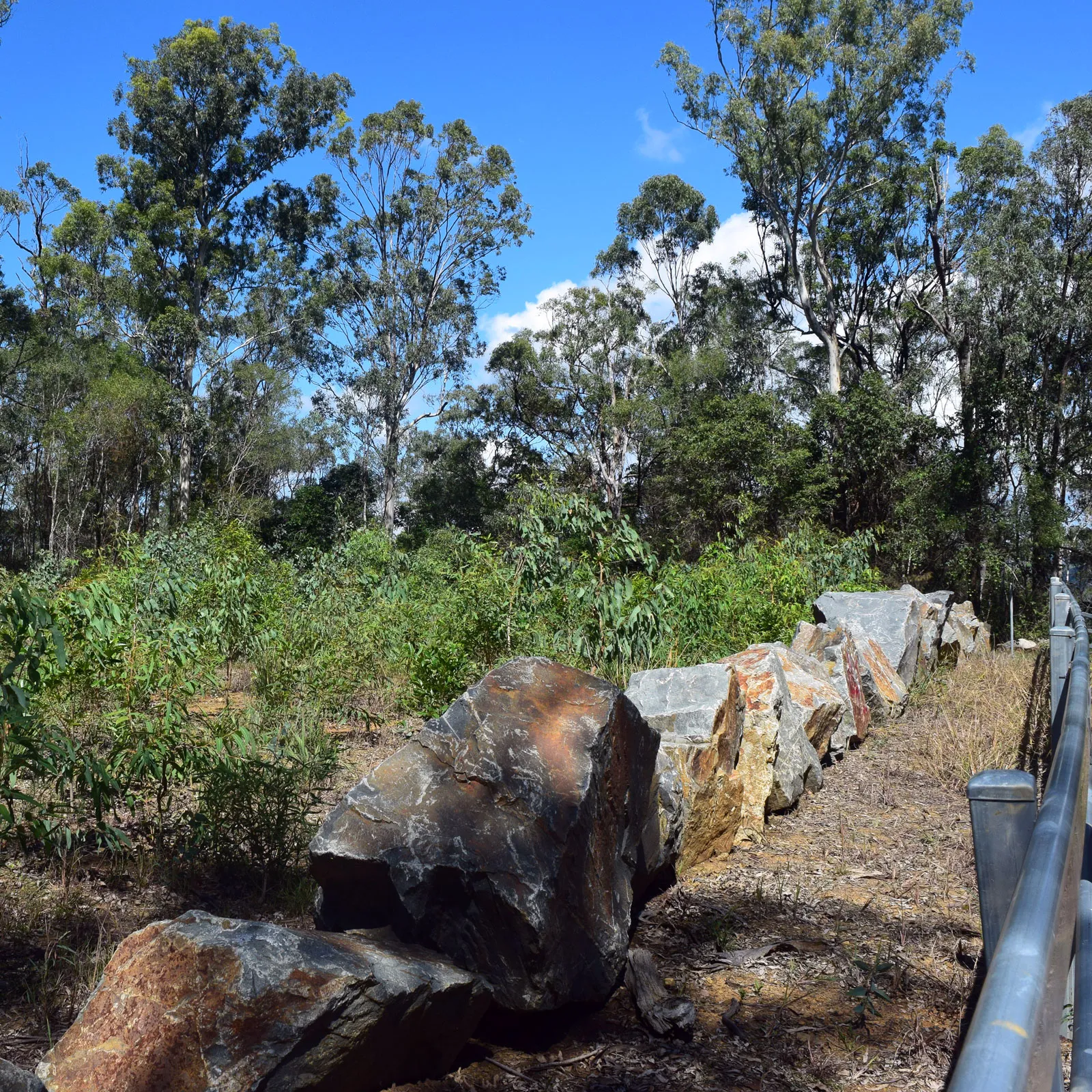
The total number of trees planted is 5,300 now – which not only provide food for injured wildlife, the site acts as a vegetated corridor for the movement of native wildlife, so barbed wire has been removed from parts of the fence for wildlife safety. The need for the resource has increased in recent years due to natural disasters, and urban sprawl impacting the connectivity of wildlife corridors. Establishing a large wildlife fodder plantation on our site, enables better biodiversity outcomes for the region.
What are your hopes for the future of circularity and decarbonisation?
Australia has a target to achieve an 80% average resource recovery rate from all waste streams by 2030. We can contribute to this goal by increasing the use of materials in construction with lower carbon content and extended life-cycles. I am optimistic about the ongoing progress in the utilisation of recycled construction and demolition materials. Holcim is a global leader in recycling, and we can benefit from recovering and reusing the city’s waste materials such as concrete, bricks, steel reinforcement, roofing materials, copper pipes or aluminium. Urban mining is a key pillar for achieving the circular economy in the construction sector.
How do we increase female participation and achievement in operations roles?
You can't aspire to be what you don't see. Ensuring women's visibility in various roles is crucial. We must carefully consider the visual representation and the presence of women in senior positions within our business. This involves creating developmental opportunities, including tailored training, strategic placements, and active participation in industry and professional events. By doing so, we build pathways for continuous success and foster an environment where everyone can thrive.
Having female mentors can be important in understanding a shared experience, but it’s also about having a good mix. I’ve always worked in sectors that are traditionally male-dominated industries – but along with that has been a workforce that recognises you for your work ethic and performance. The world is full of complex challenges including climate change and inequality, so it’s a natural advantage to have people working together from diverse backgrounds, cultures, generations, expertise, and abilities.
What message do you think is the most important for young women thinking about a career with Holcim?
Choose a career that you’re passionate about and make sure that self-development is high up on your list of priorities, so you take any opportunity that comes your way. You should always pride yourself on being authentic and approachable. Be committed to asking questions.
How can we best understand, value, and seek out the inclusion of women?
It’s everyone’s responsibility to create a supportive and collaborative environment for all employees. We make the best teams when everyone in a diverse workplace can strengthen their skills and feels empowered to build an innovative business for the future.
Thalita Santos
Thalita is the Sales Account Manager – Mid-North Coast, based in Coffs Harbour for Holcim Australia’s Aggregates business. She grew up in São Paulo, Brazil, and kick-started her career as a key account manager in the logistics industry, gaining a wide range of experience in transport, distribution, and customer engagement. Additionally, she studied communications and advertising at university.
To propel her career to the next level, she decided to travel to Australia for a six-month intensive English language course based in Sydney. Career opportunities then followed in the Harbour City, and after five years, Thalita moved north to Coffs Harbour – where her career continues to flourish.
What’s the focus of your role at Holcim?
My role is to create a robust relationship with our customers based on long-term satisfaction and loyalty. Recognising the sales team as the vital link between customers and the business, my focus is to understand the needs of the customer across various projects, and instill confidence in the quality of materials, service, and solutions.
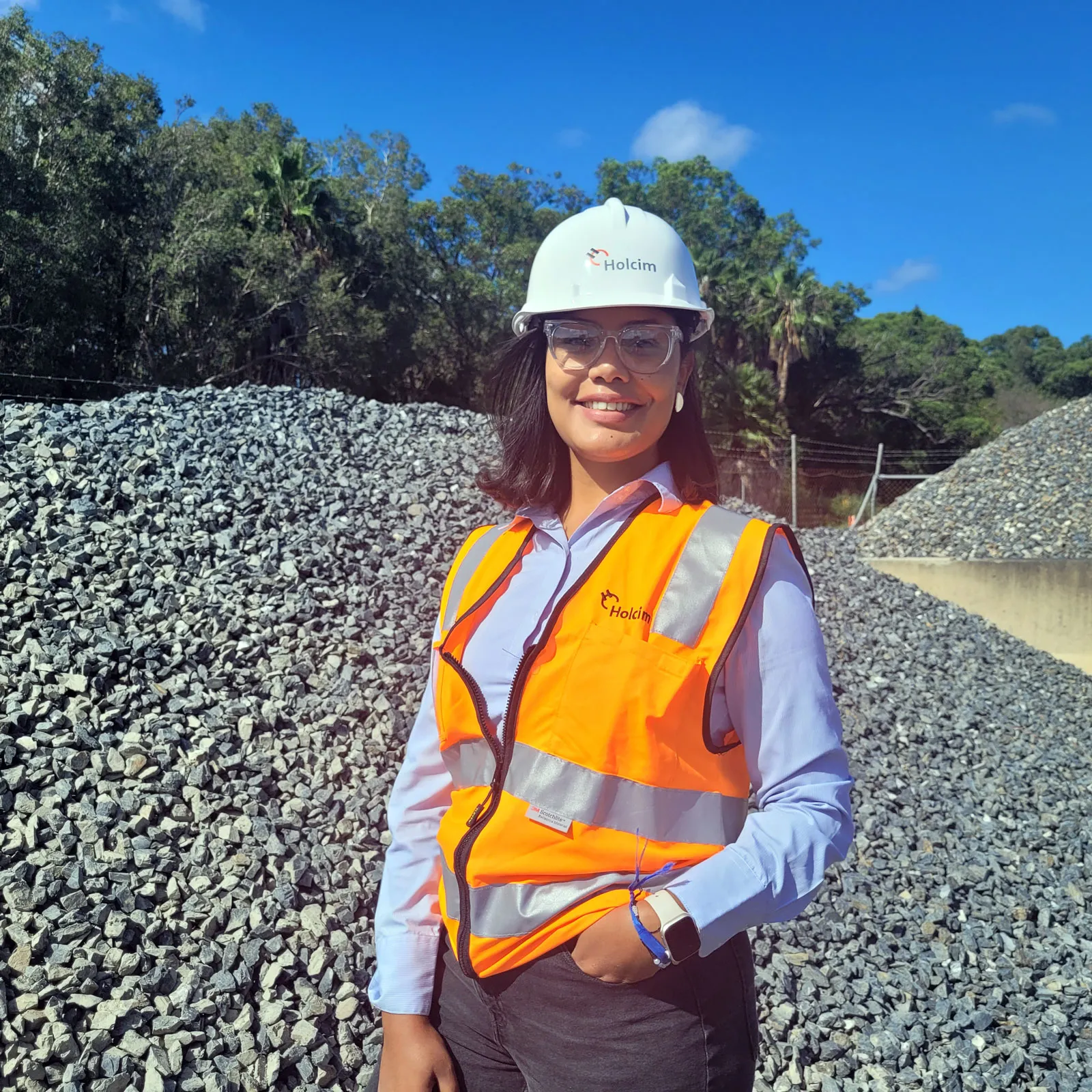
My sales region covers such a beautiful part of the world, stretching from Grafton to Taree which are serviced by the Boambee Quarry at Coffs Harbour and the Jandra Quarry at Possum’s Brush near Taree. It’s a dynamic business that is embedded in the vibrant and diverse region.
How does your role enable you to champion Sustainability?
I think there are two main aspects. Firstly, we have a responsibility to ensure we create opportunities to support our customers to achieve their sustainability goals. The Holcim ViroDecs™ Aggregates initiative for Environmental Product Declarations (EPDs) enables us to accurately communicate to customers in terms of embodied environmental impacts of Holcim’s products.
We’re actively pursuing an initiative to extend the lifecycle of building materials through recycling concrete waste, creating a new specification for road base material. The concrete waste from our plants in Coffs Harbour, Taree and Ballina contribute to increasing the volume of recycled materials used in the construction of new infrastructure.
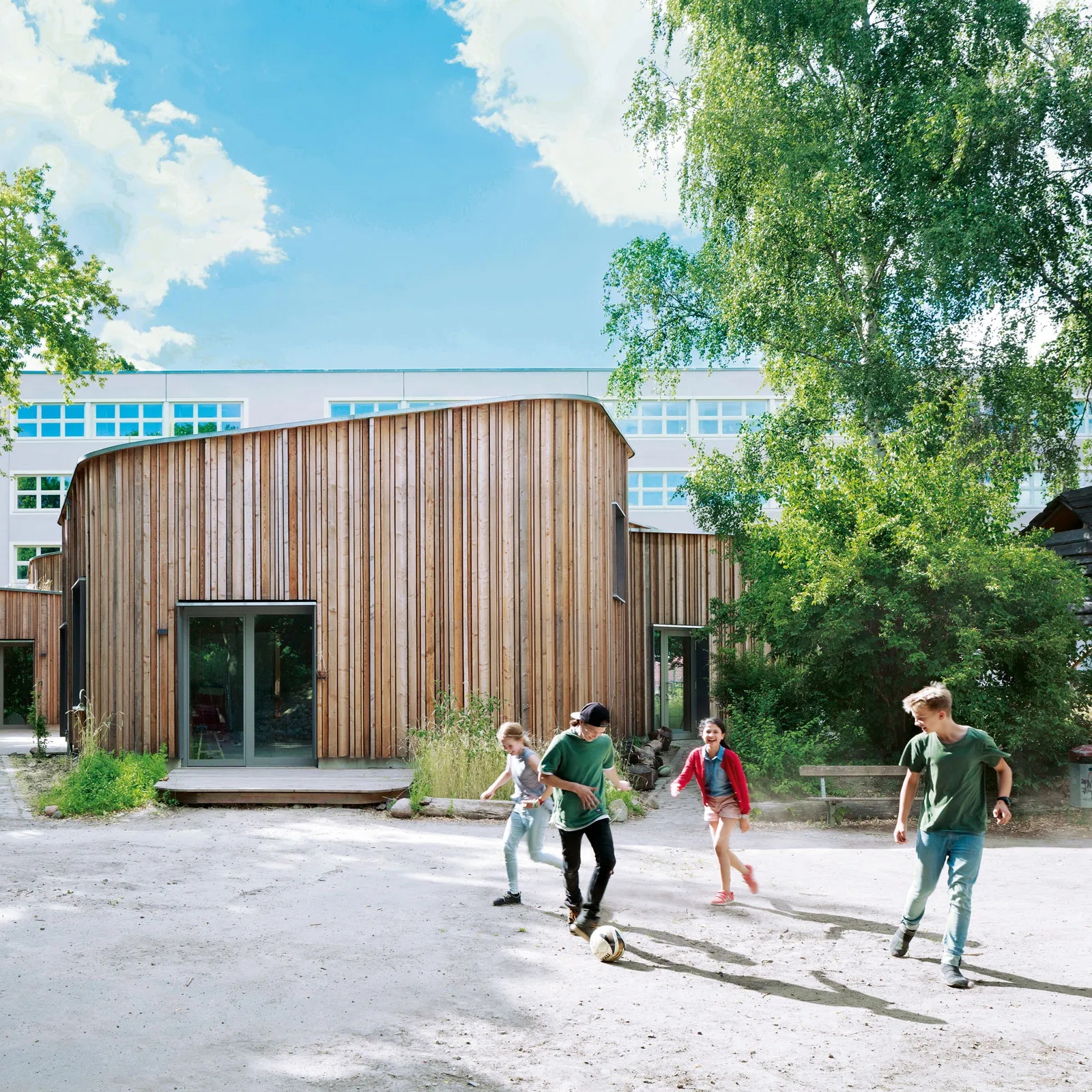
What are your hopes for the future of circularity and decarbonisation?
In my home city of São Paulo, there are more than 22 million people – and with rapid urbanisation, cities can make a real difference in decarbonising the built environment. We must find ways to reduce the carbon footprint of buildings and to build better with fewer resources.
We sometimes overlook that an important proportion of carbon emissions arise from building construction. I hope that by prioritising energy efficiency and embracing green design innovations, we can continue to contribute to sustainable building solutions.
How do we increase female participation and achievement in sales roles?
I’m the first female sales account manager in my region in the last ten years, and all account managers across our competitors are male. I believe that mentoring women and offering leadership development opportunities can inspire and encourage other women to explore and consider this role.
The travel-intensive nature of the sales account manager role, especially in regional areas, poses challenges to maintaining flexible working hours. To address this, we need to promote and create opportunities for women in the industry. Establishing networks for exchange can facilitate learning from the experience of others, offering insights into both challenges and solutions.
What message do you think is the most important for young women thinking about a career with Holcim?
Diversity and inclusion are valued at Holcim, and the business is committed to providing equal opportunities for all individuals regardless of gender. Women should feel empowered to pursue career goals here knowing that their contributions and perspectives are valuable.
How can we best understand, value, and seek out the inclusion of women?
Emphasising the value of diverse contributions and perspectives is a crucial aspect of our organisational culture. By intentionally creating spaces for women to connect and providing them with tailored development plans, we actively promote inclusivity and empowerment.
Being on the right track involves a steadfast commitment to the task of inclusion, actively breaking down barriers, dismantling stereotypes, and paving the way for a more equitable and diverse future.





